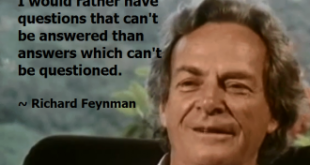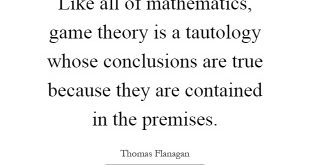div{float:left;margin-right:10px;} div.wpmrec2x div.u > div:nth-child(3n){margin-right:0px;} ]]> Advertisements
Read More »Berlin
Rumour has it that yours truly is celebrating his 60th birthday visiting his favourite town. Regular blogging to be resumed next week. [embedded content] div{float:left;margin-right:10px;} div.wpmrec2x div.u > div:nth-child(3n){margin-right:0px;} ]]> Advertisements
Read More »Post Keynesian frog
[embedded content] div{float:left;margin-right:10px;} div.wpmrec2x div.u > div:nth-child(3n){margin-right:0px;} ]]> Advertisements
Read More »I Got You Babe
I Got You Babe [embedded content] div{float:left;margin-right:10px;} div.wpmrec2x div.u > div:nth-child(3n){margin-right:0px;} ]]> Advertisements
Read More »When economists become as modest as the physicists
When economists become as modest as the physicists In advanced economics the question would be: ‘What besides mathematics should be in an economics lecture?’ In physics the familiar spirit is Archimedes the experimenter. But in economics, as in mathematics itself, it is theorem-proving Euclid who paces the halls … Economics … has become a mathematical game. The science has been drained out of economics, replaced by a Nintendo game of assumption-making …...
Read More »Blott en dag (personal)
Blott en dag (personal) [embedded content] Kämpen, folkbildaren och vännen Hans Mannefred tillägnad. div{float:left;margin-right:10px;} div.wpmrec2x div.u > div:nth-child(3n){margin-right:0px;} ]]> Advertisements
Read More »At last — the cause of Christmas has been discovered
At last — the cause of Christmas has been discovered Every schoolboy knows that cash in the hands of the public regularly shoots up at Christmas, goes down in January and shoots up again around the summer bank holiday. Nobody would suggest (not even Professor Friedman, I believe) that the increase in note circulation in December is the cause of the Christmas buying spree. But there is the question that is more relevant to the Friedman thesis: Could the...
Read More »Pure game theory — an irrelevant tautology
Pure game theory — an irrelevant tautology Applied game theory is a theory of real-world facts, where we use game theoretical definitions, axioms, theorems and (try to) test if real-world phenomena ‘satisfy’ the axioms and the inferences made from them. When confronted with the real world we can (hopefully) judge if game theory really tells us if things are as postulated by theory. But there is also an influential group of game theoreticians that think that...
Read More »Science and reason
True scientific method is open-minded, self-critical, flexible. Scientists are, in short, not as reasonable as they would like to think themselves. The great scientists are often true exceptions; they are nearly always attacked by their colleagues for their revolutionary ideas, not by using the standards of reason, but just by appealing to prejudices then current. Being reasonable takes great skill and great sensitivity to the difference between “well-supported” and...
Read More »Admati on ‘the banker’s new clothes’
Admati on ‘the banker’s new clothes’ [embedded content] div{float:left;margin-right:10px;} div.wpmrec2x div.u > div:nth-child(3n){margin-right:0px;} ]]> Advertisements
Read More » Lars P. Syll
Lars P. Syll





